I use a function that calls into the Windows API to do this. This function handles spaces and long file names.
Add to the declarations section:
Private Declare Function CloseHandle Lib "Kernel32" (ByVal hObject As Long) As Long
Private Declare Function CreateFile Lib "Kernel32" Alias "CreateFileA" (ByVal lpFileName As String, ByVal dwDesiredAccess As Long, ByVal dwShareMode As Long, lpSecurityAttributes As SECURITY_ATTRIBUTES, ByVal dwCreationDisposition As Long, ByVal dwFlagsAndAttributes As Long, ByVal hTemplateFile As Any) As Long
Private Type SECURITY_ATTRIBUTES
nLength As Long
lpSecurityDescriptor As Long
bInheritHandle As Long
End Type
Private Const OPEN_EXISTING = 3
Private Const FILE_SHARE_READ = &H1
Private Const GENERIC_READ = &H80000000
Private Const INVALID_HANDLE_VALUE = -1
The actual function
Function FileExists(ByVal fSpec As String) As Boolean
Dim lngResult As Long
Dim udtSA As SECURITY_ATTRIBUTES
On Error GoTo errFileExists
If Len(fSpec) > 0 Then
udtSA.nLength = Len(udtSA)
udtSA.bInheritHandle = 1&
udtSA.lpSecurityDescriptor = 0&
lngResult = CreateFile(fSpec, GENERIC_READ, FILE_SHARE_READ, udtSA, OPEN_EXISTING, 0&, 0&)
If lngResult <> INVALID_HANDLE_VALUE Then
Call CloseHandle(lngResult)
FileExists = True
Else
Select Case Err.LastDllError 'some errors may indicate the file exists, but there was an error opening it
Case Is = ERROR_SHARING_VIOLATION
FileExists = True
Case Else
FileExists = False
End Select
End If
End If
Exit Function
errFileExists:
Err.Raise Err.Number, Err.Source, Err.Description, Err.HelpFile, Err.HelpContext
End Function
